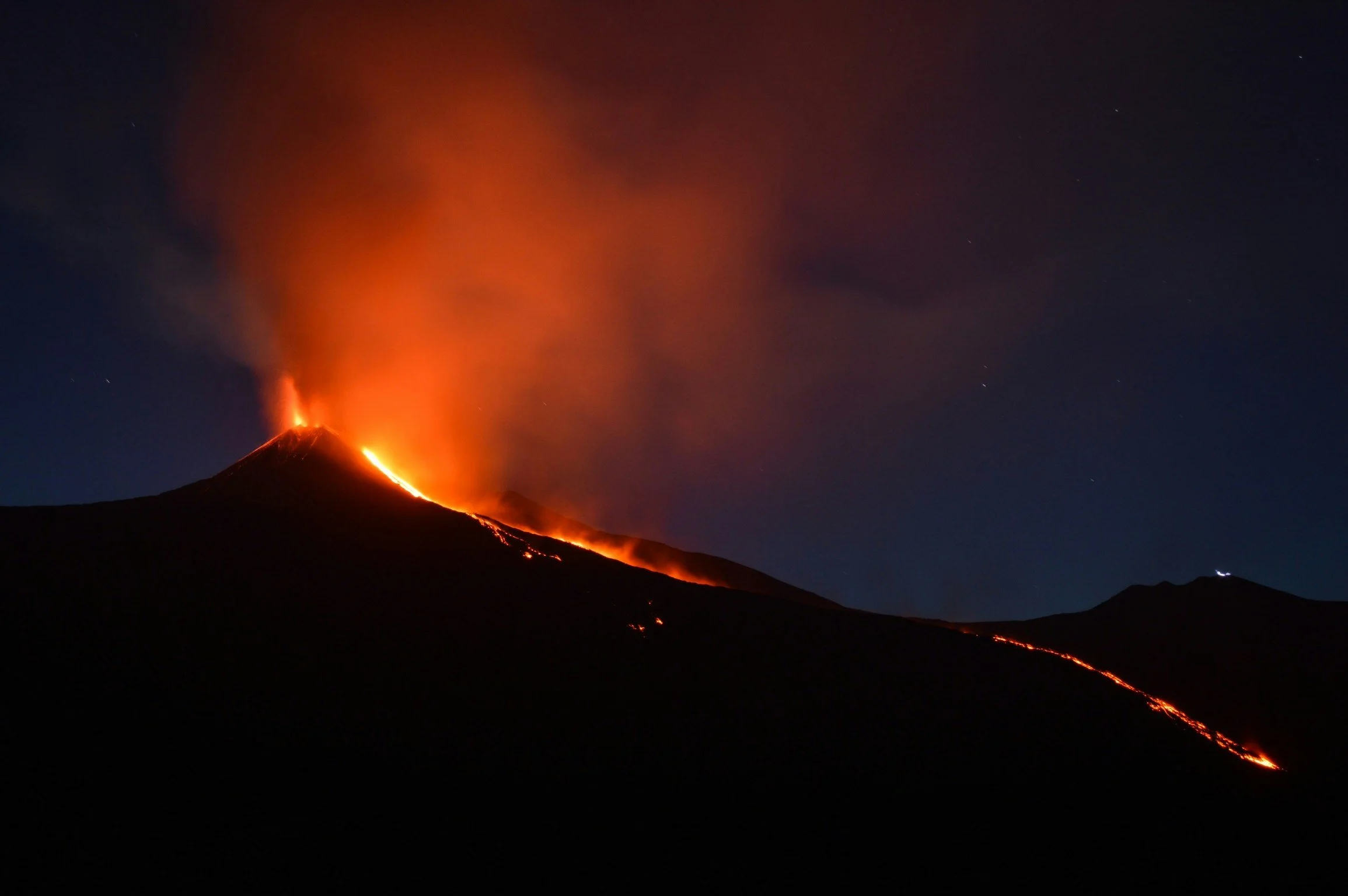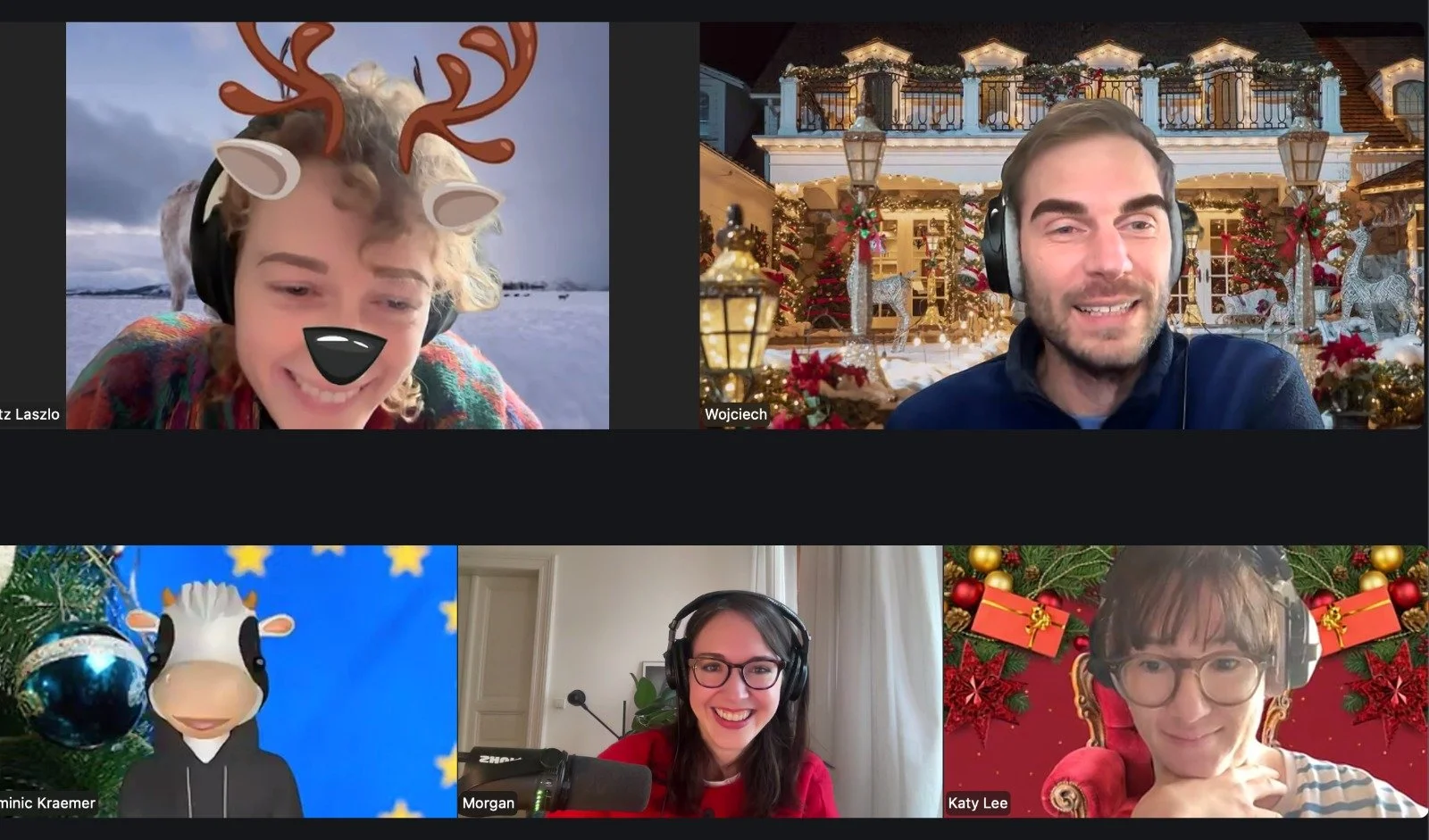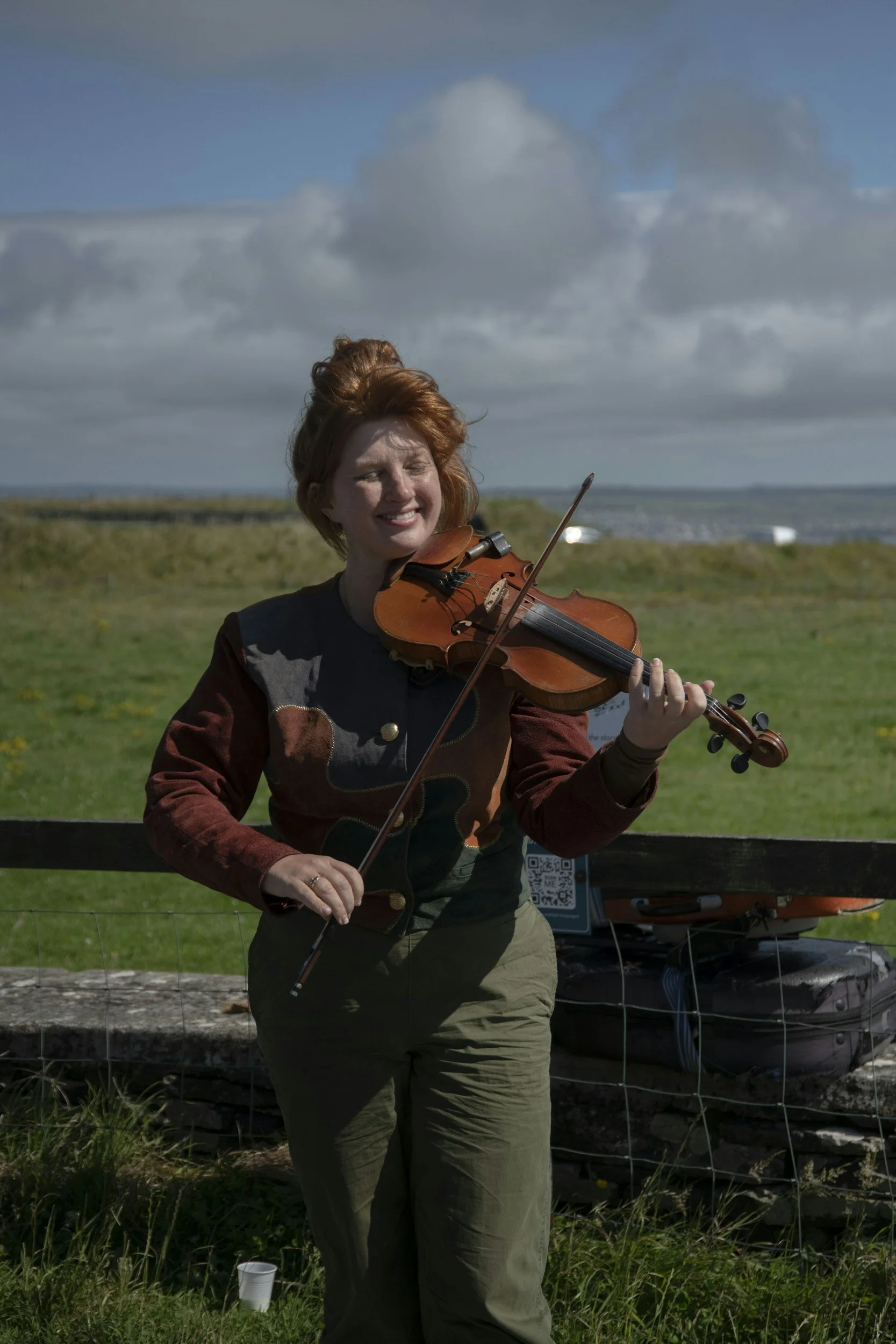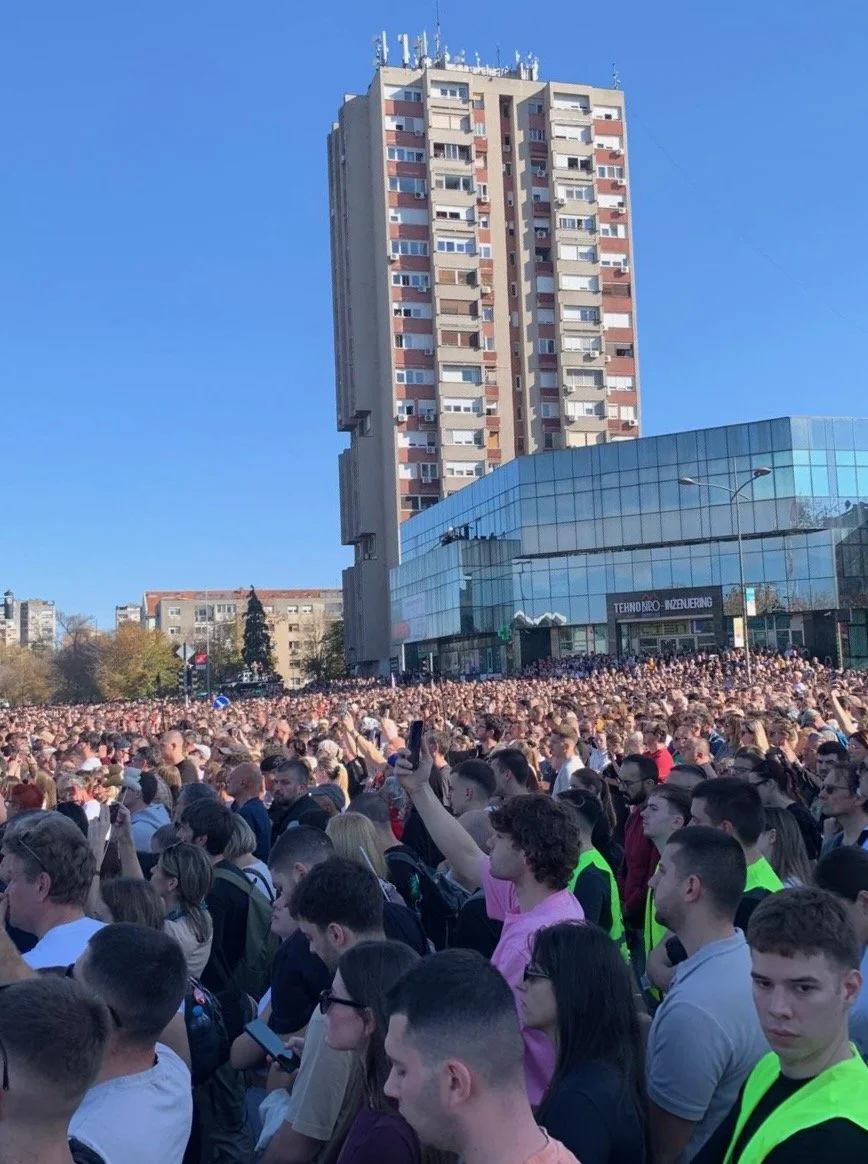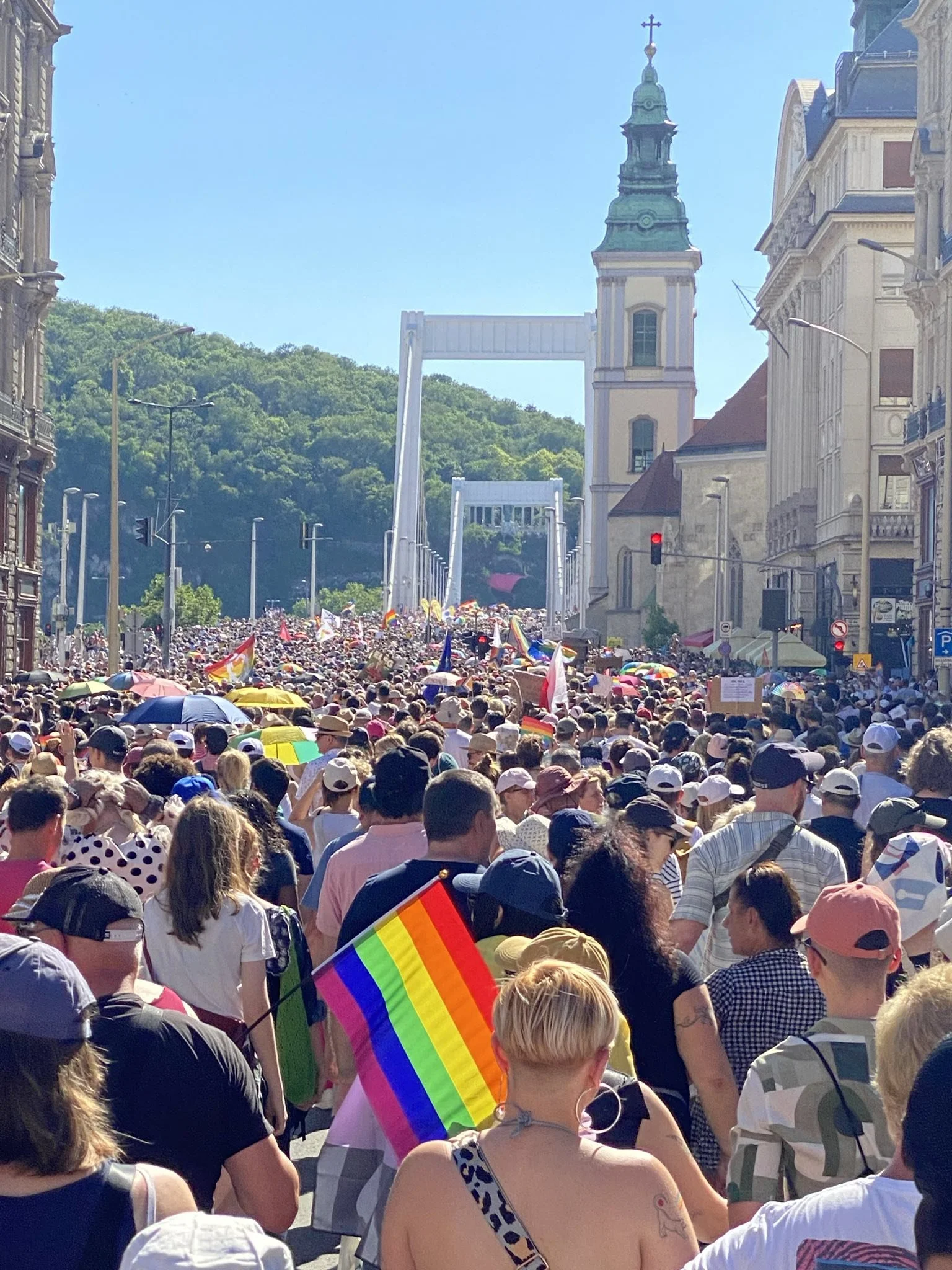ChatGPT is ruining weddings now
If you are the sort of person whose New Year’s resolutions read something like: “(1) Shoot for the moon, (2) Do what you love, (3) Change the world” – have we got a guest for you! We’re joined this week by former Icelandic prime minister Katrín Jakobsdóttir, who resigned from office in 2024 in order to run for president and is now enjoying a second life as a successful crime novelist and climate activist. Be still, our hearts. We chatted with Katrín about the security threat that climate change and the current geopolitical instability pose to Iceland; her career in politics; and why she wanted to write fiction (“Doesn’t everybody?” she asked).
2026: The year Europe gets its act together?
We are returning from our winter holidays feeling refreshed, renewed, and optimistic about 2026. Ha ha ha ha! No, but seriously, Trump’s capture of Venezuelan president Nicolás Maduro and his wife Cilia Flores was the New Year’s gift that Europe certainly did not ask for, and it raises a host of alarming questions. Among them: Does this move grant a permission slip for Vladimir Putin to encroach even further into Europe? And what does this mean for Greenland?
Pavarotti is trapped in an ice rink
This week we discuss two of the lighter news items to cross our messy Q4 desks: the fact that Denmark’s national postal service, PostNord, will soon cease to send letters or postcards, and the rather awkward saga surrounding a statue of opera legend Luciano Pavarotti that has been encased in an ice rink. Then we catch up with Jim Barne, a musician who made his name composing the theme music for a little podcast called The Europeans (wink, blush) and has just opened a smash-hit Broadway show, Two Strangers (Carry A Cake Across New York). Jim and his Two Strangers co-creator, Kit Buchan, are here to answer a burning question of Dominic’s: what is it, exactly, that makes Christmas music so Christmasy?
Can the EU make Poland recognise gay marriage?
If the winter blues have got you down, these two things might lift your spirit: (1) the Christmas section at your local Lidl, and (2) the news that a same-sex marriage in one EU country must be recognised in another. But how this ruling is going to be implemented across the bloc—especially in the countries where there are no civil partnership rights—remains to be seen. This week, we unpack the manifold questions raised by this big-step-in-the-right-direction decision. We also examine the Louvre’s controversial new ticketing policy. Is giving cheaper tickets to Europeans a form of discrimination?
Europe's climate vibe has shifted. Now what?
It hasn’t been a Good Week for the climate since, er, 1820-something? And it wasn’t last week, either. But it is a good week for The Europeans, because we’re joined by Luisa Neubauer, one of Germany’s best-known climate activists. Luisa recently wrote a terrific piece for The Economist about Europe’s climate “vibe shift”. We got her insights on what has caused the greenlash and what we ought to be doing about it. It’s a thoughtful, self-reflective, heartening conversation we think you’ll enjoy.
We’re also talking about Brussels’ proposed “military Schengen” agreement, which would allow EU member states to move troops and equipment across borders relatively swiftly. (You don’t want to know how sluggish things are now.) And we’re taking a look at Slovenia’s troubling new “Šutar Law”, a security bill that is widely understood to target the Roma minority.
How Ireland proved a basic income for artists actually works
We don’t often get to cover joyful policy news on this podcast, so this week we’re delighted to be discussing that rare thing: a European country that’s investing serious money in culture. For three years, Ireland has been experimenting with paying artists, musicians and other creative workers a basic income. And guess what? The scheme has worked so well that they’re keeping it going. But is the policy all it’s cracked up to be? This week we speak to John Baker, a co-founder of the Equality Studies Centre at University College Dublin and one of the coordinators of Basic Income Ireland, about the logic and limits of Ireland’s Basic Income for the Arts.
Help! My manager is an algorithm!
It’s been a hectic time in Europe, but we’re happy to be covering it all—or, you know, a sizable sliver of it—starting with Latvia’s potential withdrawal from the Istanbul Convention and the European Parliament’s call for new regulation of algorithmic tech in the workplace. Algorithmic management has made its way into all sorts of industries; we dig into whether or not that’s a good thing and how new legislation might help to protect us all.
Then it’s off to Paris, where tens of thousands of shoppers have already flooded the aisles of the new brick-and-mortar Shein store and thousands of others have been protesting its very existence. That’s not only because of Shein’s environmentally toxic business model but because of the recent appearance of some despicable products on its website—which has led the French government to threaten to ban the fast-fashion giant. To break it all down, we rang up Paris-based fashion journalist Dana Thomas, author of the book Fashionopolis and host of the podcast The Green Dream.
Drugs policy: Who Does It Best?
Should weed be legalised? What about heroin? Set aside any previously held opinions and prepare a far-out trip! In the final episode of 'Who Does It Best?' producer Wojciech is taking us across the landscape of Europe’s drug policies. From 90s Portugal to the coffee shops of Amsterdam to a little pit stop in Uruguay(!), we’re taking a deep dive into which policies are the sanest and safest on offer.
Report from Novi Sad: Can students bring down a regime?
We’re taking a momentary break from “Who Does It Best?” to take a trip to Serbia with producer Wojciech Oleksiak. Wojciech was on the ground in Novi Sad last weekend to report from the massive demonstration marking the one-year anniversary of the tragic accident at the city’s railway station.
And if you’re not following this story, you should be. Much of what’s happening in Serbia is a heartening example of how peaceful demonstrations can really move the needle, even in places where the political situation looks bleak. And Serbia’s leadership has been following a playbook that is increasingly common across Europe and the rest of the world. Even if you don’t live under an illiberal democracy…you might want to get familiar with how they take shape.
Childcare policy: Who Does It Best?
Childcare policy affects all of us at some point in our lives. And depending on where you live, your country’s parental leave and early-education policies can determine everything from what you do for a living to how you divide household labor to how you plan for your future. Reporters Maja Stepančič and Uršula Zaletelj took a whirlwind trip across Europe to find out which country does childcare policy best. And even if you don’t have kids of your own, we’re pretty sure you’ll enjoy taking the journey with them.
Housing policy: Who Does It Best? - Part 2
Katz goes back to the drawing board. If the housing crisis is really about wealth inequality, doesn’t the policy we need to fix it… need to address wealth inequality? We go in deep, and what Katz finds makes us wonder: are we even having the right conversation when it comes to the housing crisis?
Housing policy: Who Does It Best? - Part 1
Why is your rent so high? What are the policies that created this housing crisis, and what policies can get us out of it? This week we launch the first two parts of our new series, ‘Who Does It Best?’. At a time when many people feel like their governments are not taking care of them, we wondered: how do policies actually shape our daily lives? And are there places getting it right?
Babiš is back
It’s been a busy week for European politics, European protests, and European wallabies. In the midst of the madness, we caught up with Kateřina Šafaříková of Czech news outlet Seznam Zprávy, who filled us in on the Czech Republic’s recent parliamentary elections. Is the probable next Prime Minister, Andrej Babiš, likely to be an Orbán-esque thorn in the EU’s side, or does he just kinda wanna text with Macron? Kateřina shares her thoughts. We also catch up on the protests that Georgia’s democratic opposition has been staging against the country’s government in Tbilisi and a grassroots victory in Lithuania.
Are we all trapped in a transatlantic Truman Show?
Can we talk about Trump’s culture war, Putin’s war on inclusivity, and just about everyone’s unwillingness to pay teachers fair wages—and giggle throughout? You better believe it. AFP’s Nina Lamparski is back in the hosting chair, and strap in, listeners, because this week’s show is a ride.
Our guest this week is the delightful and incisive political analyst Paweł Zerka of the European Council on Foreign Relations. Paweł returns to the podcast to tell us why Europe is living in a Truman-Show-style universe directed by Donald Trump and his international team. We pick Paweł’s terrific brain about what our leaders can do to build upon the growing pro-European sentiment (really!) and engage with the US as its peer, not its lackey. Plus: Nina raises a glass of crémant to Luxembourgish teachers, who had what seems to us like a very swanky Good Week. And Dominic awards Bad Week to Eurovision, which seems to be crumbling whilst Russia’s Intervision is back and creepier than ever.
Should we be worried about Russian drones in NATO’s skies?
There’s no denying it’s been a pretty dark week, but we’ve got a couple of bright spots for you. What could be a better job than dreaming up ways that Europe could be improved? That’s what this week’s guest, Johanna Fabrin, does each day at the Copenhagen think tank 21st Europe. Ahead of our miniseries Who Does It Best, Dominic sat down with Johanna to talk about the group’s “blueprints” for the continent, the importance of optimism, and who, exactly, is going to pay for a fantasy train system that links all of Europe together like a massive metro line.
And not to be too negative, but…we decided it was a pretty Bad Week for basically all of the western world, thanks to the Russian drone incursion into Poland and Romania. But! It was a Good Week (er, a marginally, “meekly” better week) for the European Union, which is finally—finally—taking some overdue action regarding the war in Gaza. Did Ursula von der Leyen tune into our episode from a couple of weeks ago? We suspect yes.
Terrible week for ABBA
The music industry is reeling due to what’s being called the 'largest intellectual property theft in history' — we’ll dig into the fight between Big Tech and the people who make the music. Meanwhile, Sweden’s new cultural canon has people fuming — not least because it leaves out ABBA.
We’ll also hear from Der Spiegel’s Gunter Latsch about his chilling investigation into the shadowy world of organ trafficking. And we’ll finish, as always, with something a little lighter: archaeologists in Denmark have been uncovering a kind of Stone Age Atlantis beneath the sea and they’ve been using a funky underwater vacuum to do so.
Why is the EU not acting on Gaza?
This week, we’re dedicating the entire episode to Gaza. We have a lot of questions about the EU’s role in what’s happening there: Why is the EU not suspending trade with, or at the very least banning weapon sales to, Israel? Why is Israel being treated differently than the way Russia has been? And what will inaction mean for the credibility of the EU?
Three Rivers and a Sausage Fight
It’s our second week of “cucumber season” programming, and fair warning: we’re really leaning into the late-summer goofiness. This week, we go hard on German gastronomy, with a deep dive into Europe’s declining alcohol consumption and a recap of the utterly absurd row over the origins of Bratwurst.
Because we don’t want you to think we’ve totally lost the plot, we also had a perfectly civilised conversation with Robert Winder, the prolific author and sometime editor of The Independent and Granta whose new book, Three Rivers, comes out next week. Robert spoke with our producer Katz about the waterways that shape Europe as we know it—and about their future in a warming climate.
Save the games! Preserve the bread! Guard your rabbits!
Welcome back! We’re easing back into the swing of things after our summer holidays with a bit of “cucumber season” fare. It’s our regularly scheduled programming, just a little bit…sillier.
This week, we take a peek into the world’s first “sourdough library” with Karl De Smedt, head of the Puratos Sourdough Institute. Karl gives us a taste of his unconventional career preserving breadmaking biodiversity and explains why the starters in his library are a little like Europeans themselves. Plus: we learn why the Aalborg Zoo in Denmark is encouraging people to bring in unwanted pets and how Dominic “gave” Daniel Radcliffe his career(!).
Hungary's Pride ban goes up in smoke (and glitter)
This year’s Budapest Pride was banned in March under the Orbán government’s contentious “child protection” law. Demonstrators were threatened with hefty fines for participating, and the government said it would employ facial-recognition technology to identify and potentially prosecute those who turned out to take part at the march on 28 June.


